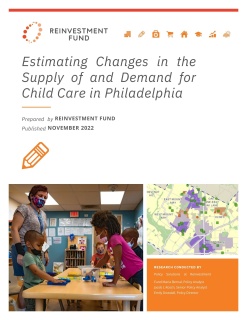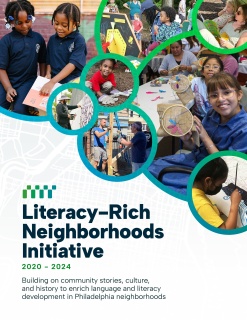Elevating Minority Small Business Owners' Voices: Informing the Development of an Early Childhood Education Membership Cohort
In 2023, the African-American Chamber of Commerce (AACC) of PA, NJ, and DE, in collaboration with early childhood education (ECE) consultants and research design partner, the Adtigo Group, conducted this preliminary study supported by a grant from the Foundation. This study informs the design of professional development opportunities for ECE minority small business owners, recognizing their vital role in supporting children, families, and the economic development of communities. Moreover, the evidence underscores the beneficial effects of professional development on both the well-being of ECE providers and positive outcomes for children.
The ECE field is currently confronting a mix of perennial and novel challenges, including staffing shortages and lingering business setbacks from the Covid-19 pandemic, affecting both ECE providers and families. The pandemic underscored the crucial role of ECE in supporting a productive workforce while revealing the system's fragility. The sector encompasses a diverse mix of both for-profit and nonprofit providers including home-based, faith-based, and center-based providers, as well as Head Start and Early Head Start programs, and organizations that operate local or regional centers. Many of these operations in Philadelphia, PA are owned by or staffed predominantly by women and women of color. Studies have found that ECE providers of color experience lower wages and limited professional development opportunities compared to their white counterparts.
In addition, effective financial oversight is paramount for the long-term viability of ECE businesses, with research underscoring the need for enhanced access to financial governance resources among ECE providers. To address this, it is recommended that business management training and professional development incorporate hands-on and in-depth support. Tailored professional development, as well as inclusive policies, are imperative for supporting ECE minority-owned small businesses, addressing known challenges, and fostering a diverse and welcoming environment in the field.
This report describes how professional development is supporting ECE minority small business owners. Additionally, it identifies gaps in offerings and outlines relevant resources and training opportunities to bolster the success of ECE minority-owned small businesses. The goal of this preliminary study is to inform the development of the African-American Chamber of Commerce ECE Membership Cohort. The insights from ECE minority small business owners and the research shed light on their experiences, offering valuable perspectives to inform ECE professional development offerings and advocacy efforts for sustainable, high-quality ECE programs in all Philadelphia communities.



